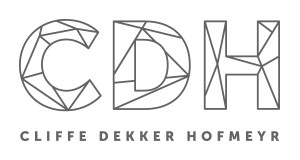
The concept of an insurable interest forms part of the foundation of a contract of insurance. In South African insurance law, without an insurable interest a contract of insurance will be invalid. Usually, a person is said to have an insurable interest where he or she faces financial harm on the loss or destruction of the subject matter which they have insured.
While common sense dictates that the owner of property has an insurable interest in such property by virtue of his or her ownership, the position is less clear as to whether a person other than the owner can have an insurable interest in another person’s property where destruction of such property will cause such a person to incur financial loss.
The above scenario is relevant in so far as shareholders of companies are concerned. Until 2013, shareholders by default could not have an insurable interest in the company’s assets in which they hold shares, based on the English decision of Macaura v Northern Assurance 1925 AC 619. However, in 2013, the Western Cape High Court’s decision in Lorcom Thirteen (Pty) Ltd v Zurich Insurance Company South Africa Ltd 2013 (5) SA 42 (WCC) expanded the concept of an insurable interest.
The plaintiff in this matter, Lorcom, was the sole shareholder in Gansbaai Fishing Wholesalers (Pty) Ltd (GFW), its subsidiary. GFW owned a fishing vessel in which Lorcom was vested with a right of use and was to be vested with ownership at a later effective date. Lorcom took out an insurance policy with Zurich Insurance to insure against any loss or damage to the vessel. When the vessel was lost at sea, Lorcom lodged a claim with Zurich Insurance, which the latter repudiated on the basis that Lorcom lacked an insurable interest as it was not the owner of the vessel which formed the subject matter of the insurance policy. Lorcom thus sued Zurich Insurance for R3 million owed to it in terms of the insurance policy.
Lorcom’s position was that it had an insurable interest on the basis that it was the sole shareholder of the owner GFW, that Lorcom had the right of use of the vessel, and that in terms of the purchase agreement, Lorcom was to be vested with the ownership of the vessel by the effective date.
Upon an interpretation of the policy, the court found that Lorcom did have an insurable interest as it was a 100% shareholder of GFW, and there was therefore “a direct correlation between the company’s financial welfare and the shareholder’s financial welfare.” This factor, coupled with Lorcom’s right of use and the purchase agreement which would have vested ownership with Lorcom, gave Lorcom an insurable interest entitling it to claim the loss in terms of the policy it took out with Zurich Insurance. Such loss was capped at the market value of the asset at the time of the contract, which was an amount agreed on in the contract. The court’s approach to an insurable interest in this case is preferable as it is based on common sense rather than legal technicalities.
Unfortunately, the court was constrained by the facts before it and so it did not comment on the position where a shareholder as the insured does not hold 100% of the shares in a company. As such, there still exists uncertainty in South African insurance law as regards to the above position.
However, based on the reasoning in Lorcom Thirteen, there is no reason why a majority shareholder, though not holding 100% of the shares in a company, should not be able to insure the property of such a company. This is because the same logic applies to a majority shareholder as it would to a sole shareholder, being that the economic livelihood of a company may depend on a specific asset, and where that asset is then destroyed, this will have an effect on the shareholders of that company. Hence, such shareholders should be able to take out an insurance policy to cover the risk of loss or destruction of the company’s property.
Roy Barendse and Fatena Ali




